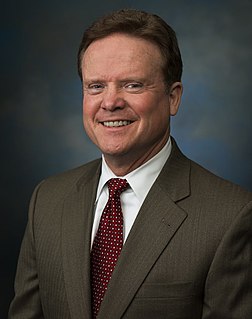A Quote by Jim Webb
Affirmative action was designed to recognize the uniquely difficult journey of African-Americans. This policy was justifiable and understandable, even to those who came from white cultural groups that had also suffered in socio-economic terms from the Civil War and its aftermath.
Related Quotes
If we could create the conditions that make racism difficult, or discourage it, then there would be less stress and less need for affirmative action programs. One of those conditions would be an economic policy that would create tight labor markets over long periods of time. Now does that mean that affirmative action is here only temporarily? I think the ultimate goal should be to remove it.
Affirmative action is not going to be the long-term solution to the problems of race in America, because, frankly, if you've got 50 percent of African-American or Latino kids dropping out of high school, it doesn't really matter what you do in terms of affirmative action. Those kids aren't going to college.
I think that we need more economic-based solutions to the problems afflicting the Black community, and I think that that's a way to redefine affirmative action. I grew up with poor white people in West Virginia, and I know there's a culture of poverty. I know that I've seen white people perform exactly the same pathological forms of behavior as Black people do when they're systematically deprived, whether it's getting pregnant, doing drugs, dropping out of school, whatever we're talking about. I think that we should have affirmative action for poor white people too.
How is this any different than the big boat argument of people when it came to African-Americans after the Civil War, decided, 'Put them on a boat and send them back where they came from?' You know, he says it in polite language, but that's what Romney's been saying, 'Get home where you came from, start all over again.'
The people and the warmakers are two distinct groups. We must never say 'we' when discussing the US government's foreign policy. For one thing, the warmakers do not care about the opinions of the majority of Americans. It is silly and embarrassing for Americans to speak of 'we' when discussing their government's foreign policy, as if their input were necessary to or desired by those who make war.


































